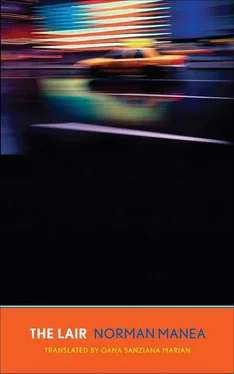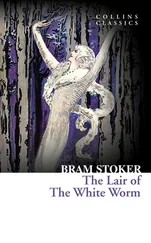At the following meeting, they read Borges, translated by a student of Spanish among them. The fictional planet of Tlon, imagined places, the cosmos revealed through a cerebral game. In 1942 in France, in the apartment of a princess, a real artifact was supposedly found bearing an inscription in the Tlon alphabet (also the name of the fictitious planet). Some time later an unknown metal, also from Tlon, was found in the pocket of a dead man in South America. Then, just as unexpectedly, in 1944 in Memphis, Tennessee, forty volumes of the Tlon Encyclopedia surfaced.
Gora followed these captivating charades, watching the young man seated on the floor; he was quiet, ecstatic, at times opaque to the influence of controversy, absorbed in the pages he’d received from the translator after the reading. In the next Borgesian story, the enigma in question was an investigation, a series of entangled crimes. The detective, obsessed with the killer’s logic, comprehends too late that he has been ensnared by reason; he becomes aware that he himself will be the next victim. He submits nonetheless to the fatality and shows up at the established rendezvous. Before emptying his revolver, the killer pronounces the sentence and the explanation, “The world is a labyrinth from which it’s impossible to escape.” Victim and killer are caught in the logic of the same dark, codified past.
No sooner had the reading ended that Palade rose, electrified, in the middle of the room.
“It’s a complicated symbolism. Actually, the text focuses on a certain evasion. Is freedom the escape from the labyrinth, or the dissolution of the labyrinth altogether? And what’s the meaning of the word labyrinth when found in the context of an invisible and murderous trajectory? A single and eternal labyrinthine stroke … why labyrinthine? If it’s a single stroke, it should be rectilinear, and swift. Like a mathematician, I should be able to understand the labyrinth of a straight line, the shortest distance between two points, even if situated at an infinite distance between them.”
The student’s voice was shaking. A thin, timid voice, in opposition to the vitality of his argument and gesticulations.
“Do you remember the words of the blind man from Buenos Aires? ‘I know something that the Greeks didn’t know — uncertainty,’ says Borges. Should I repeat the quotation? I won’t repeat it, but it would be good not to forget it. Freedom is escape from the tyranny of a singular and rational system of thought, that’s what freedom is, an open, incomplete thought; it’s antidogmatic, the uncertainty, the nebulous nature of probabilities.”
His glasses had slipped down his nose, as often happened in agitated moments. He was mumbling, “Uncertainty! The imperfect allows for dispute and revelation.”
Gora was shocked. Palade’s words reminded him of something he’d read or heard, but he couldn’t locate it. He hoped that the student would repeat the idea.
On the way to Gora’s home, young Mihnea Palade’s glasses slipped down his nose again and again. In that neighborhood near the lakes, the more elegant periphery of the city, the spring evening conspired with mystery and enchantment.
Augustin Gora had now not only the invitation, but something even more improbable — a passport.
“Yes, people are talking about this,” the student muttered, sheepishly staring at the pavement. “You have relatives in high places.”
“My wife’s relatives,” Gora hurried to specify.
A naive reply. Despite the mild relaxation of things during that time, if you could come by a passport, you couldn’t exactly be trusted. Even children knew this for a fact.
“Are you leaving with your wife?”
The question was actually, “Are you leaving for good?” One passport alone was a dubious privilege; a couple with passports fueled more doubt.
“I hope. I don’t know yet.”
Gora didn’t feel like talking anymore. The silence lengthened and grew thick. It wasn’t easy to confess that Dr. Feldman, Lud-mila’s uncle, had been held captive in the same cell with the great Party and state leader when he was a young Communist. Or that Dr. Feldman had obtained the passports for the Gora couple.
“I was asked to join the Party,” whispered the now agitated student, the comment bearing an ambiguous relevance to the subject.
“I was, too,” said the professor after a while.
“The price of the passport?”
“I didn’t accept.”
With this, the already suspect Gora became, evidently, more suspect. Palade didn’t hesitate to raise the stakes.
“I was visited by an officer from the secret police.”
This time, the student was staring the professor directly in the eyes, looking to see what couldn’t be seen.
“Routine. Standard recruiting procedure. But this, you can’t do; don’t do this! Anything but this. Not at any price, whatever happens. You don’t need the red card. They’re no longer Stalinists; they won’t arrest you. All they can do is heckle you.”
“And never give me a passport.”
“Yes, this may be true. Let me tell you something …”
Gora was ready to offer a new proof of his trust, just to ease the tension.
“Today you were talking about evasion. Freedom as an escape from a singular, rational system of thought. Should we call it an incarcerating system of thought? The detainees are isolated from other people; that’s the punishment. At the cell window, however, at a certain moment, a cat appears. It passes from one window to another, from one detainee to another, curiously and playfully. The captives call it over, offering some of their food through the grates; they invent decoys; the feline slips through the bars sometimes, lets itself be petted. One of the detainees can’t stand these frivolities, the ease with which the comrades allow themselves to be won over by such stupid distractions. ‘Assholes, idiots, morons!’ screams the pris-oner. He fights with them; he’s strong-headed, cruel, arrogant, vindictive. As he is well situated in the hierarchy of the party, they have no way of ignoring him. And they’re not up to contradicting him, either. In the end, the prisoner catches the cat and kills it, right there in the cell. And you know who the cat killer is?”
“The prisoner? It’s a true story?”
“Yes, it’s true. The hero is our great leader, the most beloved son of the people.”
“How do you know?”
“From a relative of my wife. He was imprisoned with that fanatic, who, by all accounts, was forever scowling, incurably serious. Without vice, deeply offended by any deviation from the supreme, final goal.”
The last conversation. In the end, Gora left, alone. He’d left his country and his wife, to whom he was more attached than to anyone or anything. To his surprise and despair, Lu had refused to accompany him!
A year after he arrived in the New World, he received a long, affectionate letter from Mihnea Palade, in which he mentioned the difficulties of finding his address, and in which he reported (as much as he could in a censored letter) on his academic projects. He intended to give up mathematics! For the time being, he was stalling, poring over mathematics, too, even though he was already preoccupied with medieval judicial systems of torture, the persecution of Joan of Arc, alchemy and astronomy. He’d already published some exegeses, had read the entire works of the erudite scholar Cosmin Dima, and he was wondering who might be able to act as an intermediary, who might be able to write to Dima on his behalf. Gora didn’t respond to the request, but tried to help him secure a fellowship in America. And just as he’d anticipated, his passport was refused. After two years, before graduating magna cum laude from the university, Palade received a new American fellowship, this time through the intervention of the great Dima himself. His passport was approved. Had the pressure of the Party subsided, or the secret police? The matter was never addressed, not even on the night of the American reunion between Gora and his former student.
Читать дальше












